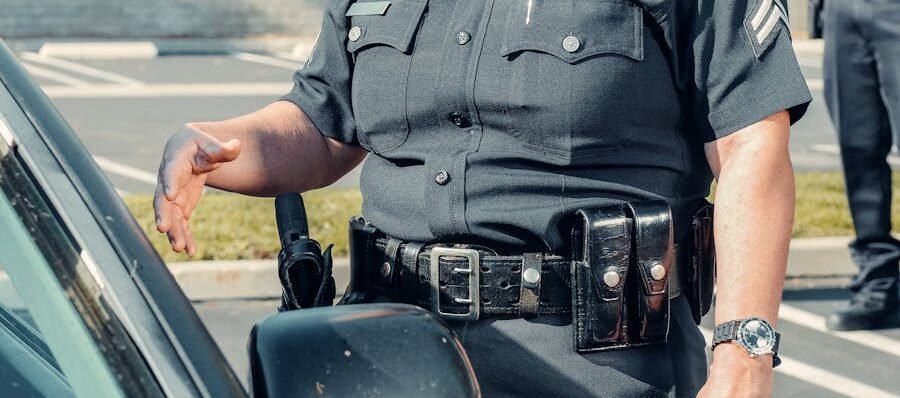Can Dash Cams Record Police Encounters Legally?
The Rise of Dash Cams and Police Interactions
Imagine you’re driving home late at night when flashing lights appear in your rearview mirror. You pull over, and as the officer approaches, you wonder—can my dash cam legally record this interaction?
With increasing concerns over civil rights, police accountability, and personal safety, more drivers are turning to dash cams as an unbiased witness. But is it always legal to record police encounters? The answer depends on where you are, how you record, and whether audio is involved. Let’s break it down.
Is It Legal to Record the Police with a Dash Cam?
Your Right to Record: Federal Law
In the United States, the First Amendment protects the right to record public officials, including law enforcement, in public spaces. This means you generally have the right to record police officers during a traffic stop as long as you do not interfere with their duties.
The U.S. Supreme Court has not ruled explicitly on dash cam recordings of police, but multiple federal courts have upheld the public’s right to record law enforcement (source: ACLU). However, state laws on audio recording and privacy can complicate things.
State Laws on Audio Recording
The biggest legal issue with recording police encounters isn’t the video—it’s the audio. U.S. states follow one of two laws when it comes to recording conversations:
- One-Party Consent States (Most states): You can legally record conversations as long as one person involved (you) consents to the recording.
- Two-Party Consent States (California, Florida, Illinois, Maryland, Massachusetts, Montana, Nevada, New Hampshire, Pennsylvania, and Washington): All parties must consent to being recorded, which may include police officers.
If you’re in a two-party consent state and your dash cam records audio without informing the officer, it could be considered illegal wiretapping (source: Digital Media Law Project).
Placement and Visibility of Dash Cams
Some states have specific laws about obstructing the driver’s view. For example:
- California and New York: Dash cams must be installed in a way that does not obstruct the windshield (source: DMV).
- Florida: Dash cams must not block the driver’s line of sight but are otherwise allowed.
If your dash cam is placed legally and does not interfere with driving, it can record encounters as long as it follows audio consent laws.
When Recording Police Might Get You in Trouble
While recording police is generally legal, certain behaviors can turn a lawful recording into a legal issue:
- Obstruction of Justice – If a police officer believes you are interfering with their duties (e.g., reaching for your dash cam aggressively or refusing lawful commands), you could be charged with obstruction.
- Secret or Covert Recording in Two-Party Consent States – If your dash cam records audio in a state requiring both parties’ consent, you could face legal consequences.
- Tampering with Evidence – If you delete or alter dash cam footage after an incident, it could be seen as tampering with evidence.
It’s always best to remain calm, keep your hands visible, and inform the officer that your dash cam is recording if asked.
Benefits of Recording Police Encounters with a Dash Cam
Even with legal gray areas, recording police encounters has significant advantages:
1. Protection Against Misconduct
Having video evidence ensures accountability and can help prove misconduct if a police officer acts inappropriately.
2. Evidence in Legal Disputes
Dash cam footage can provide valuable evidence in court if there’s a dispute over a ticket, an arrest, or an altercation.
3. False Accusations Prevention
A video recording protects both you and the officer by providing an objective account of the encounter.
4. Insurance and Legal Claims
If a police stop leads to an accident or a dispute over an alleged traffic violation, dash cam footage can help support your case.
Best Practices for Legally Recording Police Encounters
To stay on the right side of the law, follow these best practices:
- Know Your State’s Laws – Check if you are in a one-party or two-party consent state before recording audio.
- Keep Your Dash Cam Visible – Concealed cameras may raise legal and ethical concerns.
- Stay Respectful and Compliant – Inform the officer calmly if they ask about the recording.
- Do Not Interfere – Avoid actions that could be interpreted as obstructing justice.
- Store Footage Securely – If you plan to use footage as evidence, do not tamper with or delete it.
FAQ: Recording Police with Dash Cams
1. Can police confiscate my dash cam or delete footage?
No, police cannot legally delete footage or confiscate your dash cam without a warrant unless there are exigent circumstances.
2. Do I have to tell a police officer that my dash cam is recording?
In most states, you do not need to inform an officer about video recording, but if audio is recorded in a two-party consent state, you may be required to disclose it.
3. Can I post my dash cam footage of a police encounter online?
Yes, as long as the recording was legally obtained, you can share it publicly. However, be mindful of privacy laws and defamation risks.
4. Is dash cam footage admissible in court?
Yes, dash cam footage is often used as evidence in both criminal and civil cases.
5. What should I do if an officer asks me to turn off my dash cam?
You can politely decline unless they provide a legal justification, such as a warrant or specific law that applies in your jurisdiction.
Conclusion
So, can dash cams legally record police encounters? In most cases, yes—especially when video-only recording is involved. However, state laws on audio recording and dash cam placement vary, so understanding your rights is crucial.
If you frequently drive or want to ensure legal protection, check your state’s consent laws and ensure your dash cam is installed correctly. Recording police encounters can serve as a safeguard for both citizens and law enforcement, promoting accountability and fairness on the road.
Thinking of Getting a Dash Cam?
Choose a model with clear video quality, automatic recording, and cloud storage to protect your footage. Stay informed, drive safely, and know your rights!
Get the Compensation You Deserve After Your Accident
If you’ve been injured in a car crash that wasn’t your fault, don’t settle for silence or confusion. Lawayer.com connects you with› experienced attorneys who can fight for your rights and help you recover what you’re owed. Time matters—take the first step now



